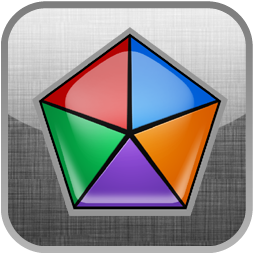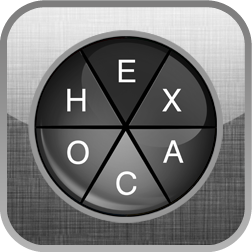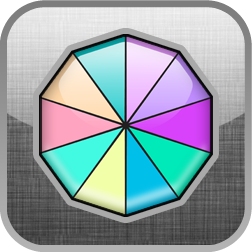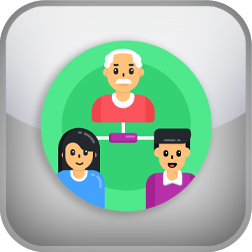Big Five Movie Star Test
You are here because one of your friends linked you to his or her Big Five Movie Star Test result.
Take the testYour friend is the most like:
Anne Hathaway

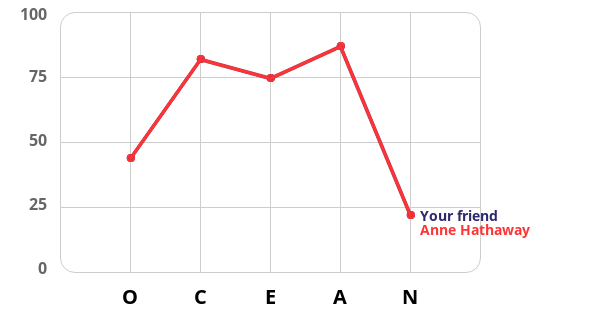
Compared to the general population, your friend is:
- Below average on Openness
- High on Conscientiousness
- High on Extroversion
- Extremely high on Agreeableness
- Low on Neuroticism
According to scientific data compiled by the Ph.D.s Dana R. Carney, John T. Jost, Samuel D. Gosling, and Jeff Porter, your friend's scores indicate that he or she is:
- Definite, persistent, and tenacious.
- Reliable, responsible, orderly, and organized.
- Someone who doesn't give up easily.
- Likely to maintain more seconds of eye contact in a conversation than the average person.
- Likely to use fewer hand movements and gesticulations in a conversation than the average person.
- Expressive.
- Active, assertive, energetic.
- Trustworthy, faithful, and loyal.
- Appreciative, forgiving, and kind.
- Carefree, unconstricted, and untroubled.
According to Geoffrey Miller, professor of psychology at the University of New Mexico, these slogans are likely to describe your friend's personality and outlook on life:
- "Just because you can, it doesn't mean you should."
- "The harder I work, the luckier I get."
- "A goal is a dream with a deadline."
- "Today is the tomorrow that you forgot to plan for yesterday."
- "Adrenaline is my drug of choice."
- "My cult following is now accepting applications."
- "Commit random acts of kindness."
- "Be tolerant and coexist."
- "Anger doesn't solve problems."
- "If at first you don't succeed, redefine success."
- "Not all who wander are lost."
- "Smile and let it go."
- "It's not life's job to make you happy; it's your job to make life happy."
According to a study done by the Ph.D.s Dana R. Carney, John T. Jost, Samuel D. Gosling, and Jeff Potter, your friend's scores indicate that he or she is:
- More likely to own sports merchandise or décor than the average person (posters, caps, shirts, etc.).
- More likely than the average person to have a wall calendar in their home.
- More likely than the average person to own a flag (e.g. the flag of their country).
- More likely than the average person to have organized the books and records in their home into some orderly system.
- More likely than the average person to dislike reggae music.
According to peer-reviewed studies from Texas AM University (US), Pepperdine University (US), Cambridge University (UK), and Sejong University (Korea), your friend's scores indicate that he or she is:
- More planful, organized, and goal-directed than the average person.
- More in favor of using military action to solve foreign policy disputes than the average person.
- Less likely than the average person to cheat on their homework and exams.
- Less likely than the average person to treat themselves to a little extra luxurious something when shopping.
- More energetic and quicker to act than the average person.
- Someone who reads more newspapers and who follows the news more closely than the average person.
- More likely than the average person to enlist their friends and acquaintances to get behind the political issues they support.
- More likely than the average person to be perceived as likeable, warm, and trusting.
- More likely than the average person to benefit from talking their decisions through with others before committing.
- More likely than the average person to oppose the use of capital punishment.
- More likely than the average person to try and strike up a compromise when making a decision, tending to think of the wishes of others as important alongside their own.
- More likely than the average person to return to a chain of hotels or bed and breakfasts that they've used in the past and enjoyed.
According to a scientific study done by the Ph.D.s Gokul Chittaranjan, Jan Blom, and Daniel Gatica-Perez, your friend's scores indicate that if he or she own a smartphone he or she is:
- Likely to receive more calls on their phone than the average person.
- More likely to use internet apps on their smartphone than the average person.
- More likely to use productivity apps like (MS Office) on their smartphone than the average person.
- Less likely to use entertainment apps (like games, audio, and video) on their smartphone than the average person.
- Likely to receive more text messages on their phone than the average person.
Take Next
GET THE FULL STORY
Become a lifetime member with a one-time payment
WHAT YOU GET
Access to members-only tests
Ability to track and save test results
Access to all of our eBooks (value $44.94)
Access to premium type assessments and infographics
Become a memberSave and monitor your results over time
Become a member today
Sign Up


